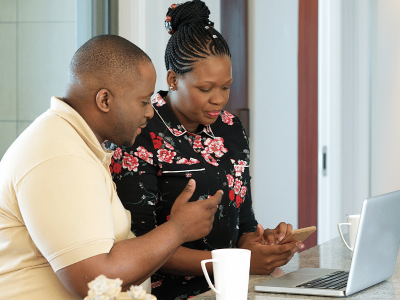.jpg)
Acknowledging and admitting to the lie
Taking responsibility for the deception is crucial to reestablishing trust in a relationship. Admitting to the lie demonstrates honesty and integrity, key elements in rebuilding trust. Avoiding excuses or justifications and fully accepting accountability for actions is necessary. It may be challenging to acknowledge the error, but doing so will help restore credibility.
To regain trust, it is essential to express genuine remorse and apologize sincerely. Assuming full responsibility for one’s wrongdoing and expressing regret shows commitment towards the relationship. Repentance needs to be expressed clearly, accurately identifying the consequences of one’s actions on their partner.
Consider taking substantial action towards rebuilding what was damaged before. Participating in activities that promote authenticity can be beneficial towards mending relationships that have experienced deception. Communicating effectively about what can be done differently moving forward is also vital.
A woman lost her husband’s confidence after learning she had an affair with another man. The couple ended up separating for more than a year. However, she owned her mistakes and asked forgiveness from her husband genuinely. One thing led to another until they finally managed to repair their relationship through honest conversations and counseling sessions. With honesty as well as putting in the effort to rebuild what was broken, couples can regain trust even after lies have been told.
Regaining trust requires more than just saying sorry, it’s like putting together a puzzle with missing pieces, but instead of finding them, you have to create them yourself.
Actions to take to regain trust
Actions to Re-Establish Trust in a Relationship
Acknowledging and admitting to lying is just the first step in regaining trust in a relationship. Rebuilding the lost trust requires sincere efforts and determination, along with emotional intelligence.
- Apologize and Accept Responsibility: Express genuine remorse and apologize without any justifications. Take accountability for the mistake and its consequences.
- Be Honest and Transparent: Share every detail of the situation, be open and transparent in communication.
- Listen and Empathize: Listen actively, validate feelings and show empathy towards the hurt partner.
- Consistency: Keep the promises, be reliable, act sincerely, and show consistency in actions to re-establish trust.
- Rebuild Communication: Build healthy communication by responding promptly, and being respectful, kind, and understanding.
- Seek Professional Help: Seek help from relationship experts, counselors, or mediators to guide you through the healing process.
It is essential to understand the unique needs and circumstances of the partner to build customized solutions for regaining trust. Remember to maintain consistency and patience.
Pro Tip: Re-establishing trust is not a one-time affair but an ongoing process. It requires persistence and commitment, and the success depends on understanding your partner, their needs, and problems.
Apologizing without sincerity is like adding sugar to a bitter pill, it might taste sweet for a moment but the bitter truth will eventually surface.
Apologize sincerely
As part of regaining trust, express genuine remorse and take responsibility for your actions. Acknowledge the harm caused and provide a sincere apology with no excuses. Make amends by taking corrective measures and ensure that it doesn’t happen again. Rebuilding trust is a gradual process that requires patience and ongoing commitment.
It’s crucial to understand the impact of your actions and how they have affected others. Show empathy by actively listening to their concerns and validating their feelings. Furthermore, commit to rebuilding trust through consistent actions that align with your words.
Taking responsibility for your mistakes demonstrates accountability and integrity. It fosters transparency and fosters a culture of honesty. In turn, this improves relationships with stakeholders such as clients, employees, or partners.
According to Forbes, 80% of people would stop doing business with a company after experiencing poor customer service. This highlights how crucial it is to rebuild trust once it’s been lost.
Accountability is not just a word, it’s an action that requires owning up to our mistakes and committing to making things right.
Be accountable for actions
Taking full responsibility for one’s actions is a crucial step in rebuilding trust. It is important to own up to the negative impact of one’s actions on others and acknowledge any harm caused. This involves being transparent and sharing information, offering sincere apologies, and making reparations where possible. By showing accountability, individuals can communicate their commitment to change and begin to rebuild trust with those around them.
To fully demonstrate accountability, individuals must also be willing to listen actively and respond appropriately to feedback from others. This requires open communication channels that allow for honest dialogue and constructive criticism without fear of retaliation or defensiveness. By actively seeking out feedback, individuals can demonstrate their willingness to learn from mistakes and make positive changes going forward.
In addition to taking responsibility for past actions, it is important for individuals to put in place mechanisms that will prevent similar problems from occurring in the future. This may involve developing clear policies and procedures, implementing training programs or performance metrics, or seeking external guidance and support where necessary.
A prime example of the importance of being accountable comes from Hollywood actor Benedict Cumberbatch who publicly apologized after using an offensive term during an interview. He acknowledged the harm that his words had caused and committed to doing better moving forward. His response demonstrated genuine remorse and a willingness to take responsibility for his mistake – a move that was widely criticized but ultimately helped him win back the public’s trust over time.
Communication is key, but if you’ve been caught lying, it might take more than a key to open those trust doors.
Communicate openly and frequently
The key to regaining trust is communicating candidly and consistently. This requires creating an open dialogue with stakeholders to acknowledge past mistakes, outline steps for improvement, and provide regular updates on progress. Demonstrating transparency in decision-making and being accessible to feedback will also help build trust over time.
To effectively communicate, consider using multiple channels such as town halls, email updates, or one-on-one meetings. Emphasize active listening and be receptive to concerns or disagreement. Open communication can foster a sense of unity and collaboration towards shared goals.
It is important to remember that rebuilding trust can be a slow process that requires consistent effort. However, by maintaining a commitment to transparent communication, organizations can rebuild credibility and create stronger relationships with stakeholders.
According to Forbes’ “10 Simple Steps Leaders Can Take To Win Back Trust”, “Leaders must follow through on their promises if they are going to rebuild trust.”
Rebuilding trust is like trying to mend a broken vase with only sticky tape – you can try your best, but there will always be cracks.
Rebuilding trust
Rebuilding the Broken Trust: It is daunting to rebuild trust after lying in a relationship and one has to accept the responsibility for the damage done. Introspect, apologize, and take corrective measures through consistent open communication. Trust isn’t rebuilt overnight, it requires patience and persistence.
Regaining Trust through Actions: Trust is rebuilt with actions, not words. Be transparent and accountable for one’s behavior, share passwords if needed, and follow through on promises. Patience and understanding from the partner’s end is vital in this process.
Unique Details: It is important for the partner to express their feelings on how they were hurt and for the person who lied to empathize with them and practice active listening. The rebuilding process is likely to involve setbacks as trust can’t be rushed and there is no quick fix.
True History: Mary and John had trust broken in their marriage. John lied about his finances and it led to a huge once-off fight, with no communication for a week. They both attended couples therapy and started to rebuild their relationship by practicing open and honest communication. It took time, but they were able to regain each other’s trust and build a stronger relationship.
Consistency is key in rebuilding trust, like showing up to brunch even when you’re hungover and would rather die.
Consistency and follow-through
Consistency in Action
Consistency in following through with promises and commitments can help rebuild trust. Here’s how:
- Prioritize communication to ensure expectations are clear.
- Be proactive about delivering on promises, accounting for change in circumstances.
- Deliver results within a communicated timeline or provide updates when the timeline moves.
- Take responsibility for any negative outcomes and offer solutions to mitigate damaged relations.
In addition, consistently following through will demonstrate reliability, while building a reputation of accountability that ultimately leads to decreased stress on shared projects.
To further establish consistency and follow-through as integral traits, consider how United Airlines experienced loss of public trust after an incident involving a passenger being forcefully removed from their flight. The company regained trust by being accountable for the event and working towards making operational improvements that prioritize passenger safety.
When it comes to transparency, honesty is the best policy – unless you’re a magician, then sneakiness might be more your style.
Transparency
Transparency depends on openness and clarity. Informed stakeholders facilitate trust and prevent misunderstandings. To build better relationships with investors, customers, employees, and communities, businesses must provide comprehensive and accurate information about their policies, procedures and decision-making processes.
Consistently demonstrating transparency requires implementing mechanisms such as scalable reporting tools like regular newsletters or reports shared with stakeholders. Making financial information publically accessible can also help create trust among prospective investors and other stakeholders.
Businesses can align transparency standards with their objectives to create value for customers, employees, shareholders, and society at large. Transparency fosters innovation by facilitating feedback loops that enable improvement across the organisation.
Incorporating transparency as a core value offers significant bottom-line benefits and appeals to socially aware consumers. Therefore, businesses must proactively promote openness by sharing useful information via appropriate channels and strive to create a culture of transparency.
Integrating transparency into operational strategies fosters accountability by creating an ethical conduct environment. Embracing transparency empowers companies with increased networking capabilities resulting in productivity gains through enhanced material resource utilisation efficiency by partnering with reliable external stakeholders. Trust-based long-term partnerships incentivised by open dialogue derived from delivering trustworthy data analytics insights drive sustainability in an ever-changing globalised market landscape. Patience and understanding are essential ingredients for rebuilding trust in any relationship.
Patience and understanding from both partners.
Relationships require constant effort to maintain trust. It is crucial for both partners to have mutual empathy and understanding in order to rebuild trust. This entails a deep sense of awareness and comprehending each other’s needs, desires, and feelings. Both parties must exhibit patience and fortitude when navigating the journey of debriefing interpersonal wounds and rebuilding pathways of communication.
It’s important to recognize that healing takes time, so both individuals must understand that there will be ups and downs along the way. Adopting an attitude of patience means that one is willing to persevere through setbacks while still maintaining hope for a better future. Similarly, showing understanding involves listening with an open mind and heart without being judgmental or dismissive.
Remember, the road to rebuilding trust is not a sprint but rather a marathon with many intricate turns. Hence, it requires significant dedication from both sides to sustain genuine progress over time without relapsing into past mistakes.
In one case study by Psychology Today, Rachel and Mark overcame infidelity by implementing healthy communication patterns that strengthened their bond. They dedicated themselves toward having conversations regularly about their thoughts, feelings, and actions in hopes of creating further intimacy leading to proactivity rather than reactivity.
Overall, learning how to build trust takes continuous work from all parties involved, but every effort put forth can lead towards long-lasting success in relationships.
Frequently Asked Questions
1. How can I regain my partner’s trust after lying?
The first step is to apologize for your actions and take responsibility. Show your commitment to regain their trust by being transparent and honest in all future interactions.
2. Is it possible to regain trust after a lie?
Yes, it’s possible. However, it takes time, effort and patience to rebuild trust. You need to prove to your partner that you are trustworthy through consistent actions and words.
3. What are some ways to show that I’m trustworthy again?
You can start by being honest and transparent in all your interactions. Keep your promises and follow through on commitments. Communicate openly and actively listen to your partner’s concerns. Be reliable and consistent in your behavior.
4. How long does it take to regain trust in a relationship?
It varies for each relationship. It can take weeks, months, or even years to rebuild trust after a lie. Patience, commitment, and communication are key in the process of regaining trust.
5. What if my partner doesn’t forgive me for lying?
You have to respect your partner’s decision and give them space and time to process their emotions. However, you can still work on improving yourself and being honest to prevent similar situations from happening in the future.
6. What can I do to prevent lying in the future?
You can start by identifying the reasons why you lied, and work on overcoming those issues. Develop healthy communication habits and be willing to face the consequences of your actions. Seek help from a therapist or counselor if necessary.









